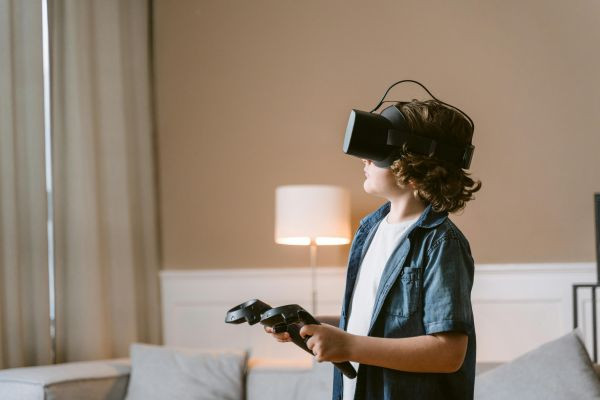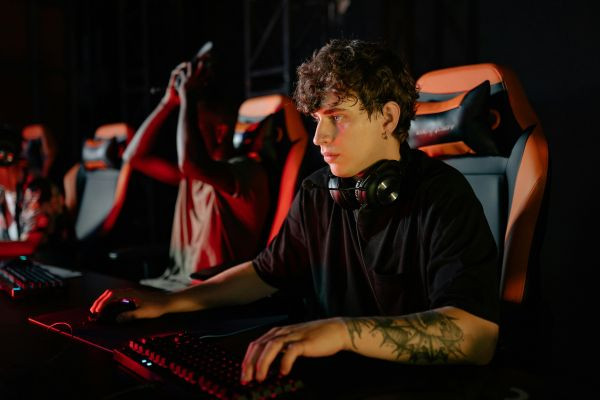Multiplayer games revolutionize the way individuals connect; in these dynamic competitive environments, the best players worldwide can co-operate or compete against each other.
12/05/24 • 349 Views
Multiplayer games revolutionize the way individuals connect; in these dynamic competitive environments, the best players worldwide can co-operate or compete against each other. However, on the one hand, camaraderie and the excitement of a multiplayer game give way to another darker force: toxicity. Toxicity of multiplayer games-the harassment, verbal abuse, trolling, or griefing-all of them would spoil the player's fun and discourage a newcomer to jump into the multiplayer game action. Tackling toxicity involves understanding its roots, recognizing its effects, and adopting effective strategies for fostering a more positive gaming culture.
The Roots of Toxicity:
Toxicity in multiplayer games can stem from a variety of factors, such as:
Competitive Pressure: The high-stakes nature of competitive games can lead to frustration, with players lashing out when things don't go their way.
Anonymity: Relative anonymity in online interactions can give individuals a sense of security and make them behave in ways they wouldn't if they were in a face-to-face interaction.
Lopsided Teams: Unequal team composition or skills lead to resentment, particularly if players feel their teammates are underperforming.
Cultural and Language Barriers: Poor communication between players of different cultures can lead to miscommunication and conflicts.
Reinforcement of Toxic Behaviors: When the toxic players do not face enough consequences, they are more likely to continue the behavior because there is a vicious cycle.
Impact of Toxicity:
The impact of toxicity is not limited to just ruined gaming sessions.
Mute and Report
Most multiplayer games provide tools to mute abusive players and report their behavior. Using these features ensures toxic individuals are held accountable without escalating conflicts.
Avoid Engaging
Engaging with toxic players often exacerbates the situation. Instead of retaliating, focus on your gameplay or leave the situation altogether.
Play with Friends
Playing with friends minimizes exposure to toxic random players and creates a supportive environment where teamwork and communication thrive.
Practice Empathy
Sometimes, toxic behavior is a result of frustration or external stressors. Showing empathy and understanding can diffuse potentially tense situations.
Set Boundaries
Know your limits and take breaks if toxic encounters overwhelm you. Your mental health is more important than any game.
Developers' Role in Combating Toxicity
Game developers can play a crucial role in combating toxicity by implementing systems and features that promote healthy interactions.
Robust Moderation Tools
Automated AI-powered systems can scan the chat logs and gameplay for abusive behavior, flagging or penalizing them immediately.
Community Guidelines
Clear rules and guidelines outline expectations for behavior. The understanding of what is and isn't acceptable creates a baseline for respectful interactions.
Player Feedback Mechanisms
Engagement that encourages players to report toxic behavior ensures offenders are dealt with quickly. The community must be transparent in the reporting process to establish trust within the community.
Recognition of Good Acts
It can be encouraged via commendation systems or in-game rewards where players are incentivized by rewarding them based on positive interactions, being good sport, etc.,.
Awareness Campaign
Educational campaigns can be facilitated through messages, tutorials regarding the damage caused by toxicity with the involvement of mental health and wellness organizations.
Building Up a Gaming Culture
It all requires combined efforts from individuals, game developers, and everyone in the gaming world combating toxicity together.
Inclusivity
This will create an environment that values all gamers.
Encouraging Positive Communication
A community that promotes teamwork, mutual respect, and constructive feedback does not have much toxic behavior.
Hosting Moderated Events
Event hosting by the developers and leaders of the community with active moderation will also demonstrate to the participants how beneficial positive interaction is.
Creating Safe Spaces
Dedicating forums or in-game areas to which players can reach, share experiences, and give mutual support will help dilute the toxic effect.
Conclusion:
The existence of toxicity in multiplayers is rampant, but not unmanageable. A well-informed player knows where toxicity starts and what a player must do in order to stop it from occurring. When better tools and systems are pushed forward by the developers, together, as a gaming community, a healthy and enjoyable environment is bound to emerge.
This doesn't only serve to decrease toxicity but to cultivate the opposite environment of respect, empathy, and inclusivity that gamers of all walks will be able to enjoy games at their best. Whether casual or a pro competitor, every action counts in creating the future of multiplayer gaming.









